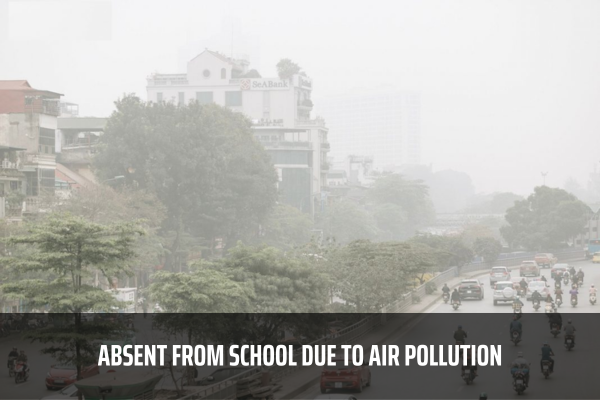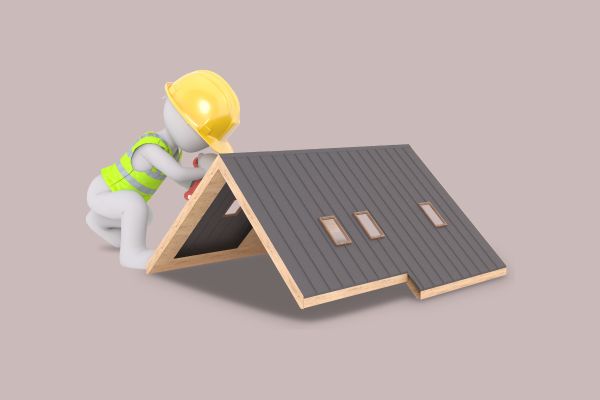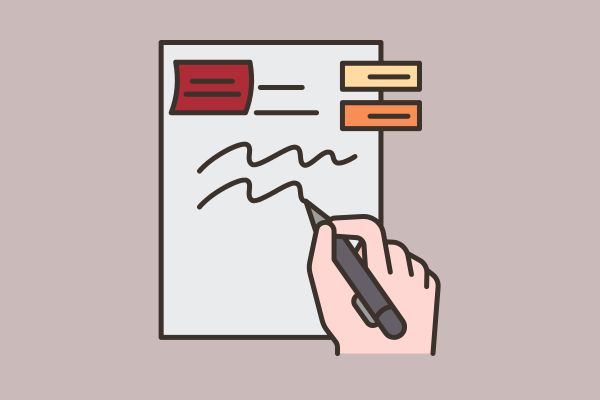When should students be allowed to absent from school due to air pollution in Vietnam? What are the preventive measures to protect health when the air quality index is at a very bad level?
- When should students be allowed to absent from school due to air pollution in Vietnam?
- Vietnam: What are the preventive measures to protect health when the air quality index is at a bad level?
- Vietnam: What are the preventive measures to protect health when the air quality index is at a very bad level?
When should students be allowed to absent from school due to air pollution in Vietnam?
On January 15, 2024, the Ministry of Health, the Department of Environmental Health Management issued Circular 12/MT-SKHC 2024 to enhance community recommendations on measures to protect health from the impacts of air pollution.
Pursuant to the recommendations accompanying Circular 12/MT-SKHC 2024, an Air Quality Index (AQI) is introduced, which is calculated on a scale of 6 AQI values, corresponding to symbols and colors to alert the air quality and its impact on human health, as follows:
Value Range AQI | Air Quality | Color | Impact on Human Health |
0 - 50 | Good | Green | Good air quality, no impact on health |
51 - 100 | Moderate | Yellow | Acceptable air quality. However, sensitive individuals (elderly, children, people with respiratory or cardiovascular diseases, etc.) may experience certain health effects. |
101 - 150 | Poor | Orange | Sensitive individuals may experience health issues, while the general individuals are less affected |
151 - 200 | Bad | Red | The general individuals may start experiencing health effects, while sensitive groups may face more severe health issues. |
201 - 300 | Very bad | Purple | Health alert: Everyone may experience more serious health effects. |
301 - 500 | Hazardous | Brown | Emergency health warning: The entire population is affected with severe health consequences. |
Information on air quality in provinces and cities is regularly updated on the website of the Ministry of Natural Resources and Environment (https://cem.gov.vn) and the Departments of Natural Resources and Environment of each province and city.
Pursuant to Section 6 of the recommendations accompanying Circular 12/MT-SKHC 2024, the following preventive measures are suggested to protect health when the air quality index reaches a hazardous level (AQI at 301-500):
* For the general individuals:
- Avoid outdoor activities and switch to indoor activities or choose days with better air quality.
- Close windows and doors to limit and avoid exposure to pollutants.
* For sensitive individuals:
- Avoid all outdoor activities and engage in indoor activities instead.
- Close windows and doors to limit and avoid exposure to pollutants.
- Monitor their health and seek medical attention if experiencing acute symptoms such as difficulty breathing, coughing, or fever.
For preschool, kindergarten, and primary school classes, consider allowing students to stay home if the air quality index reaches a hazardous level for 03 consecutive days. If attendance is necessary, outdoor activities should be avoided, and indoor activities should be prioritized or adjust the school schedule accordingly.
Therefore, in cases where the air quality index reaches a hazardous level (AQI at 301-500), preschool, kindergarten, and primary schools may consider allowing students to stay home if the hazardous air quality persists for 03 consecutive days.

When should students be allowed to absent from school due to air pollution in Vietnam? What are the preventive measures to protect health when the air quality index is at a very bad level?
Vietnam: What are the preventive measures to protect health when the air quality index is at a bad level?
Pursuant to Section 4 of the recommendations accompanying Circular 12/MT-SKHC 2024, the following preventive measures are suggested to protect health when the air quality index is at a bad level (AQI at 151-200):
* For the general individuals:
- Limit outdoor activities or engage in moderate-intensity physical activities. If work or outdoor activities are necessary, arrange and choose times of the day with lower pollution levels, rest more, and perform activities with moderate intensity.
- Avoid activities in areas with high air pollution risks.
- Increase the use of public transportation and limit the use of motorcycles or bicycles to reduce exposure to polluted air.
- Limit the opening of windows and doors during periods of heavy air pollution, especially for households near traffic areas or heavily polluted areas.
- Clean the nose and throat with saline solution, especially after going outside. Rinse the eyes with saline solution before bedtime.
* For sensitive individuals:
- Avoid outdoor activities or engage in moderate-intensity physical activities. Perform indoor exercises or physical activities. Limit the opening of windows and doors during periods of heavy air pollution.
- Clean the nose and throat with saline solution, especially after going outside. Rinse the eyes with saline solution before bedtime.
- Monitor their health and seek medical attention if experiencing acute symptoms such as difficulty breathing, coughing, or fever.
Vietnam: What are the preventive measures to protect health when the air quality index is at a very bad level?
Pursuant to Section 5 of the recommendations accompanying Circular 12/MT-SKHC 2024, which provides guidelines for preventive measures to protect health when the air quality index is at a very bad level (AQI at 201-300):
* For the general individuals:
- Avoid prolonged outdoor activities or engage in strenuous physical activities. Encourage indoor activities instead.
- Avoid activities in areas with high air pollution risks. If necessary to engage in activities in high-risk areas, use masks that can prevent fine particulate matter (with an aerodynamic diameter ≤ 2.5 μm).
- If using transportation, increase the use of public transportation and limit the use of motorcycles or bicycles to reduce exposure to polluted air.
- Limit the opening of windows and doors during periods of heavy air pollution.
- Clean the nasal passage and throat with saline solution in the morning and evening, especially after being outdoors. Rinse the eyes with saline solution before going to bed.
* For sensitive individuals:
- Avoid all outdoor activities and switch to indoor activities or choose days with better air quality. Limit the opening of windows and doors during periods of heavy air pollution.
- If necessary to leave the house, minimize the time spent engaging in outdoor activities and use masks that can prevent fine particulate matter. Clean the nasal passage and throat with saline solution in the morning and evening, especially after being outdoors. Rinse the eyes with saline solution before going to bed.
- Monitor their health and seek medical attention if experiencing acute symptoms such as difficulty breathing, coughing, or fever.
LawNet



